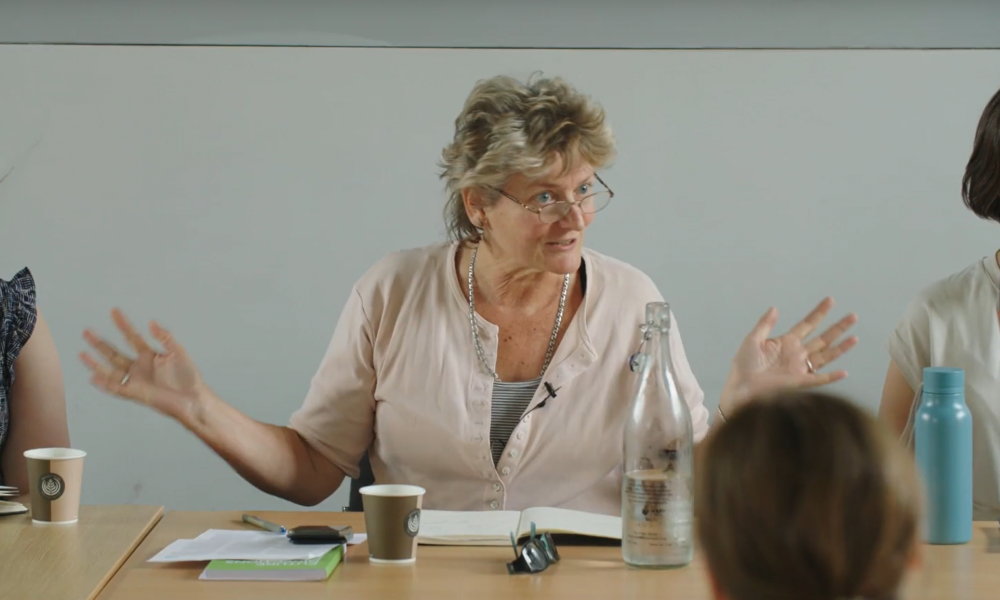“Academia as [unfinished]”: connecting environmental research with policy
recent news
- New algorithm could lead to better predictions of future climate change
- Sprint team on safe CO2 shelf sea storage publish initial findings
- Presenting at the Agricultural Economics Society Annual Conference: John Lynch

The Agile Initiative ran a summer school called “Connecting environmental research with policy: a pathway to real-world impacts” in July 2023. It set the scene of UK local, regional and national environmental policy and legislature, asking the invited speakers and attendees: how do we get research into policy? Attendees learned how to write for policy, discussed how to connect across the science-policy divide, and heard from decision makers how to engage with them effectively, as well as hearing about how the Agile Initiative’s sprint method fits into all of this.
The title of this post is taken from a piece of feedback, which, responding to the question “what gave me a new angle on something?” read in its entirety:
The role of academia as a
Anon, unfinished feedback
Without knowing exactly what the author intended (when do we ever know, after all) – academia is unfinished, both as a pathway to infinite explorations and discoveries, and as a set of methodologies and infrastructures intended to change us. The environment is changing fast, and policy change is rapid. The Agile Initiative exists to suggest how we might bridge the gap between environmental research and the needs of decision makers, at the timescale of decision makers.
At the summer school we heard from Dame Professor Sarah Whatmore (Oxford University), Dr Kieron Stanley (Defra), Charlotte Stead (DfT), Dr Prue Addison (BBOWT), and Dr Julia Baker (Mott MacDonald). We asked them what they wanted academics to consider. Dr Kieron Stanley said that academia, industry and policy teams needed to do more “shared problem formulation”. When asked for some tips on how to get science into the hands of policy-makers, he said:
If you could tell us what’s in your paper, what it means to us, how it pertains to the policy, that would be great – but that’s our burden as well, we all have to get better at communication.
It would be great if we could have digestible formats for understanding the latest thinking, and traditionally academia doesn’t make that easy, but we don’t make it easy to try to listen either – it’s a job for us both to do, to try to come back to shared problem formulation.
The quality of information’s interpretation, and use thereof, is something the academy could offer more leadership on.
Dr Kieron Stanley, Defra
Dr Prue Addison emphasised “we need usable research that needs immediate answers” and that academics needed to “tailor research to the decision maker”. Charlotte Stead said she needed “usable science in a way we can communicate very clearly.” Sarah suggested we highlight what makes social science methodologies robust, so that decision makers can “see that kind of knowledge as more reliable, more robust, things that they can bring to their stakeholders”. Dr Julia Baker pointed out that “policy is quite blunt – it gives us the headlines, but we need to go into the details” and issued the challenge to the audience:
Keep up.
Dr Julia Baker, Mott MacDonald
The audience at the summer school said they learned about different ways of measuring impact and the value of a variety of outputs; understanding inter/trans-disciplinary & impact-focused research as a process not just an outcome; on combining disciplines that it’s ok to be “undisciplined”; the complexity and importance of engaging with stakeholders; and the role of co-creation in interdisciplinary research.
The audience expressed concerns about toxic academic culture, especially for early career researchers in fast-paced short-term contracts intended to meet policy needs; not knowing how to find a clear list of potential policy opportunities and networks; how to network with decision makers and stakeholders; how inaccessible the policy sphere feels; why academics are expected to keep up with industry/policy-makers rather than the reverse; and how policy-makers really view and use evidence.
Agile is a 5 year programme, running 2022-2026, and aims to engage constructively with the hopes and concerns voiced above.
You can watch the full panel on YouTube:
And other videos from the summer school on this Agile YouTube playlist.
Learn more about Agile’s 2023 Summer School and join our mailing list to hear about future events.


